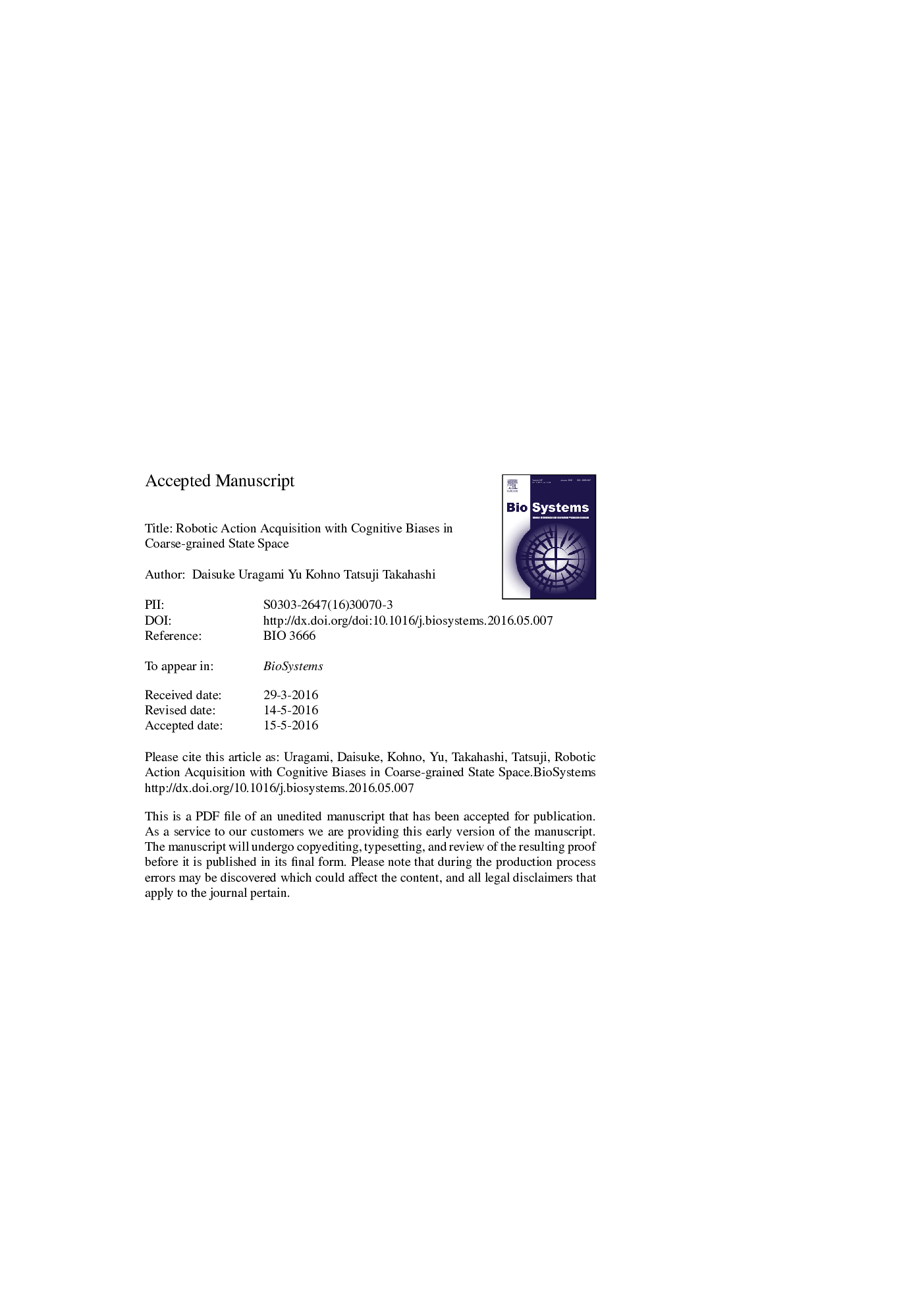| Article ID | Journal | Published Year | Pages | File Type |
|---|---|---|---|---|
| 8406794 | Biosystems | 2016 | 34 Pages |
Abstract
Some of the authors have previously proposed a cognitively inspired reinforcement learning architecture (LS-Q) that mimics cognitive biases in humans. LS-Q adaptively learns under uniform, coarse-grained state division and performs well without parameter tuning in a giant-swing robot task. However, these results were shown only in simulations. In this study, we test the validity of the LS-Q implemented in a robot in a real environment. In addition, we analyze the learning process to elucidate the mechanism by which the LS-Q adaptively learns under the partially observable environment. We argue that the LS-Q may be a versatile reinforcement learning architecture, which is, despite its simplicity, easily applicable and does not require well-prepared settings.
Related Topics
Physical Sciences and Engineering
Mathematics
Modelling and Simulation
Authors
Daisuke Uragami, Yu Kohno, Tatsuji Takahashi,
